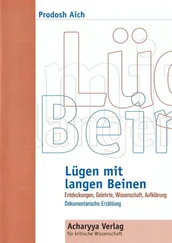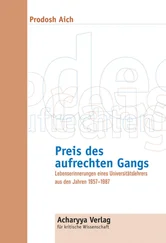On page 56 he wants us to note: “My mother’s relations, who were all high in the public service, my grandfather, as I said, being the Duke’s chief Minister, made life more easy and pleasant for us; but for many years my mother never went into society, and our society consisted of members of our own family only.” Is it not amazing that Max Müllerdoes not even indicate that his mother, his sister and he himself has just been neglected by his “mother’s relations” ?
Remembering his childhood at Dessau Max Müllerfails to develop a sense of looking at realities. As Friedrich Maximilianhe obviously suffered from poverty, but is unable to comprehend the cause of the poverty. Though, as Friedrich Maximilian,he was not considered to be a part of his “mother’s relations, who were all high in the public service” , he wishes to have belonged to “Basedows” while writing his “Autobiography”. In his fantasy, he is actually a “ vonBasedow”, almost a “noble”. In his wishful thinking he is nearer to the nobles rather than being a “Müller”. To what extent he identified himself with the Basedows is reflected in his remark (p. 53): “I was often told that I took after my mother’s family, whatever that may mean, and this was certainly the case in outward appearance, though I hope not in temper.”
Almost at the end of this chapter of ours, we repeat a quote from “ My Autobiography ”:
“My childhood at home was often very sad. My mother, who was left a widow at twenty-eight with two children, my sister and myself, was heart-broken. The few years of her married life had been most bright and brilliant. My father was a rising poet, ... Contemporaries and friends of father, particularly Baron Simolin, a very intimate friend, who spent the Christmas of 1825 in our house.”
In 1825, Friedrich Maximilian is two years old. How can Max Müllerremember in 1898 that “Baron Simolin, a very intimate friend” , had “spent the Christmas of 1825 in our house” ?
We apologise taking a little aside and looking a little ahead. Neither Max Müllernor Friedrich Maximilianin his letters to his mother has ever mentioned this Baron Simolinwith his first name. Simolins are known as “Freiherren” since the 17th Century. There are many “Simolins”, having at least three lineages. Max Mülleruses the technique to relate himself to many celebrated surnames and conceals the first names, as we shall see also later. It is a hollow technique to suggest that he came along with almost all celebrated persons of his time.
We are unable to ascertain whether Max Müllerhas been unable to differentiate between fantasy and reality or Friedrich Maximilianhad evolved systematically to a Max Mülleras we are experiencing by his memories on the life of Friedrich Maximilianwhich are far from truths. We shall have to look into evidences.
We close this chapter here ascertaining that all along his schools life in Dessau Friedrich Maximiliancould not excel due to his poverty, due to his chronic headaches, due to his humble social background and due to his social deprivations. He tried to compensate his sufferings and deprivations by creating daydreams, inventing fantastic episodes, developing aspirations that could not be related to the reality. These ways of compensations are not unusual.
CHAPTER 3 FRIEDRICH MAXIMILIAN’S SCHOOL DAYS AT LEIPZIG
We recall Adelheid Mülleris in search of a masculine guidance for Friedrich Maximilian. He is isolated in Dessau. The members of her parental family do not care for him, not even the male members. Ultimately, she finds a solution when he is 12 years old. A friend of late Wilhelm Müller, one Professor Carus, at Leipzig is ready to take care for Friedrich Maximilian. His son Victoris of the same age. Together they attend the best school at Leipzig, the Nicolai-Schule. They become friends. Leipzig is about 60 km away from Dessau. On his school days at Leipzig, there is only one relatively reliable source of information: Max Müller. There are no records kept in the archives.
The source Georgina Max Mülleris inadequate. As referred in the last chapter she marries Friedrich Maximilian Müllerin the 1859. She is then 24 years old. She belonged to a copper-smelter and merchant family in the British Kingdom. Her educational background is unknown. Both of her volumes include in the main, letters written in German, translated into English. We are unable to ascertain whether she ever learnt German.
She devotes in her book approximately 6 pages to this life period of Friedrich Maximilian Müllerunder headings: “Nicolai School Leipzig” , “Dr. Carus”, “Music” , “Letters to his Mother” and “Examination at Zerbst” . She does not care for chronology. She quotes letters without referring to dates. Amongst them, there are also six letters of Friedrich Maximilianto his mother. These letters are translated into English from German original. We do not know by whom. We know only that the diction, the style in English, is almost that of an English scholar and not of a schoolboy. We take liberty to quote her here only once. We refrain from our comments. Georgina Max Müller:
“ Before leaving the house of Dr. Carus, Max writes to his mother:— Translation.
'When I remember the time that I first sent you my birthday greetings from Leipzig, and now see that this period of life is nearly over. I must gratefully acknowledge how good God has been to us in various ways, and has given us many compensations. But above all, how grateful we should be that God has preserved you, our dear mother, to us, to sweeten for us all that is bitter, to reward all effort. How I rejoice over next year, in which a new existence opens for me, a higher aim in life floats before me, and I shall have you both with me. I cannot tell you how I rejoice at the thought of this time, when I must take another step forwards, and shall again, at all events for a time, be with my own people.'”
The chapter III of “My Autobiography” by Max Müllercomprises the pages 95 - 111. On page 95 we read:
“It was certainly a poor kind of armour in which I set out of Dessau. My mother, devoted as she was to me, had judged rightly that it was best for me to be with other boys and under the supervision of a man. I had been somewhat spoiled by her passionate love, and also by her passionate severity in correcting the ordinary naughtiness of a boy. So having risen from form to form in the school at Dessau, I was sent, at the age of twelve, to Leipzig, to live in the house of Professor Carus and attend the famous Nicolai-Schule with his son, who was of the same age as myself and who likewise wanted a companion. It was thought that there would be a certain emulation between us, and so, no doubt there was, though we always remained the best friends. The house in which we lived stood in a garden and was really an orthopaedic institution for girls.”
It is a radical break in Friedrich Maximilian’s early life. For the first time in his life, he lives in an affluent household. In the whole chapter, Max Müllerdoes not give any account of the differences of his school life at Dessau and at Leipzig. He does not disclose the personal feelings of Friedrich Maximilianbeing away from his mother and sister in a new so far unknown household.
Читать дальше












